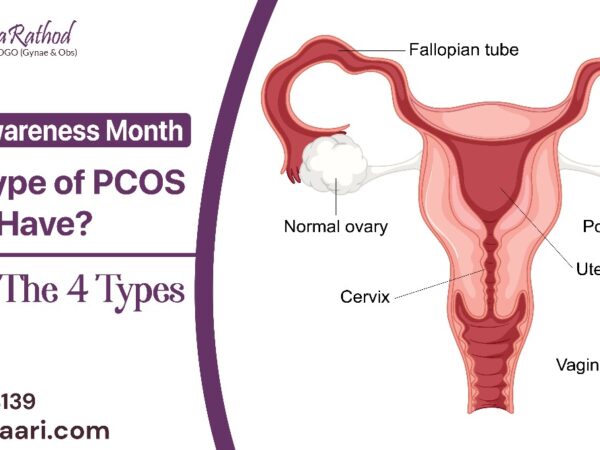Polycystic ovary syndrome has become quite a common problem in this modern age, with every 1 in 10 women getting affected by this medical condition in their childbearing age. Not only does PCOS affect the menstrual cycle of the patient, but it affects your overall health and appearance significantly.
Causes
There can be many factors that might affect your chances of getting polycystic ovary syndrome, with genetics being the most common cause. The two main causes of PCOS are:
· Androgens: It’s normal for women to make some amount of androgens, but excess androgen in the female bodies is not considered healthy. The hair growth on your face, acne, and irregular menstrual cycle are quite a few symptoms of excess androgen in your body.
· High Levels of Insulin: Another cause of PCOS is obesity or excess weight. Those who are suffering from insulin resistance might have a hard time controlling their diet and exercise routine. If you don’t get enough physical activity or your eating habits are abnormal, you will be at a high risk of excess weight that could lead to PCOS.
Symptoms
· Menstrual Cycle: Women suffering from PCOS might miss their periods or have frequent periods, probably every 20-23 days.
· Too much facial hair: Due to the excess androgen in your body, you might start getting hair on the face and body. This medical condition is commonly known as hirsutism. Almost 70% of the ladies suffering from PCOS get hirsutism.
· Hair Thinning: Your hair may start to fall out or get thinner over time
· Weight gain, skin darkening, and patches on your skin are other common symptoms of PCOS.
Effects on the body
PCOS is one of the most common causes of infertility in ladies, as the hormonal imbalance can affect your menstrual cycle and the ability to release several eggs during ovulation. It may also develop small ovarian cysts (fluid-filled sacs). PCOS can also lead to obesity in women.
How is it Diagnosed?
Women might experience a few or all symptoms of PCOS. If you are getting irregular menstrual cycles, have high androgen levels, and cysts in the ovaries, there is a chance you must have PCOS.
Pregnancy
The imbalance of the female reproductive hormone can cause polycystic ovary syndrome, a medical condition that leads to severe issues in the ovaries. The eggs are developed in the ovaries and released every month or every 28 days. However, menstruation and ovulation do not occur regularly in women suffering from PCOS. These women might not be able to conceive or have a normal menstrual cycle.
Around 70-80 percent of ladies suffering from PCOS face difficulty in getting pregnant. The sooner you get the PCOS treatment in Thane, the higher the chances you will be able to conceive. In thane you can consult Dr. Sujata Rathod a leading Gyanecologist in thane for treatment of PCOS.
Tips to Manage PCOS
· Perform exercises regularly
· Get treatment for menstrual problem
· Eat low-carb and fibre-rich foods
· Get a dietary and exercise plan to lose weight
· Try acupuncture
· Consult a gynecologist who specializes in hysterectomy , someone like Dr. Sujata Rathod in Thane


